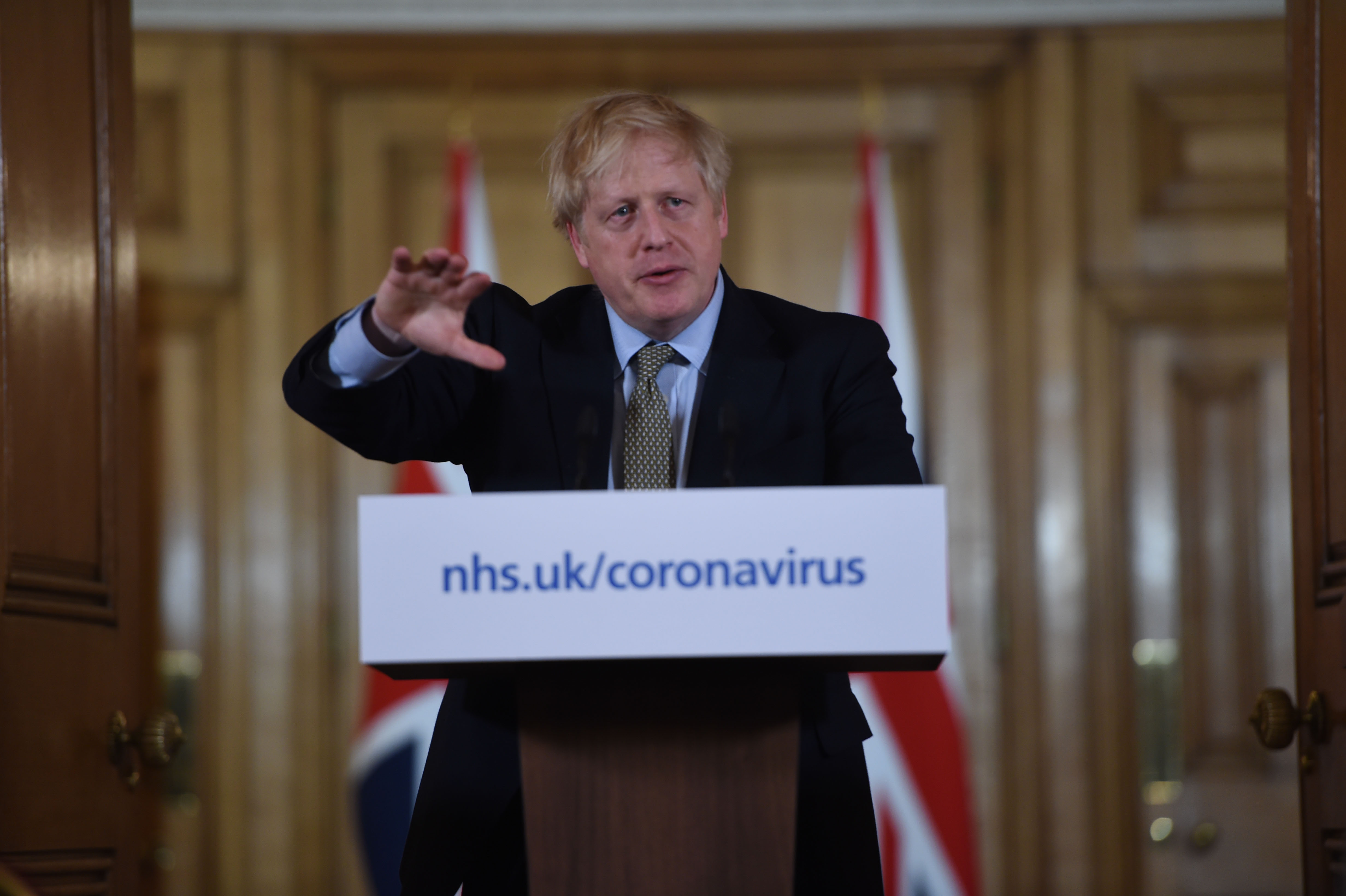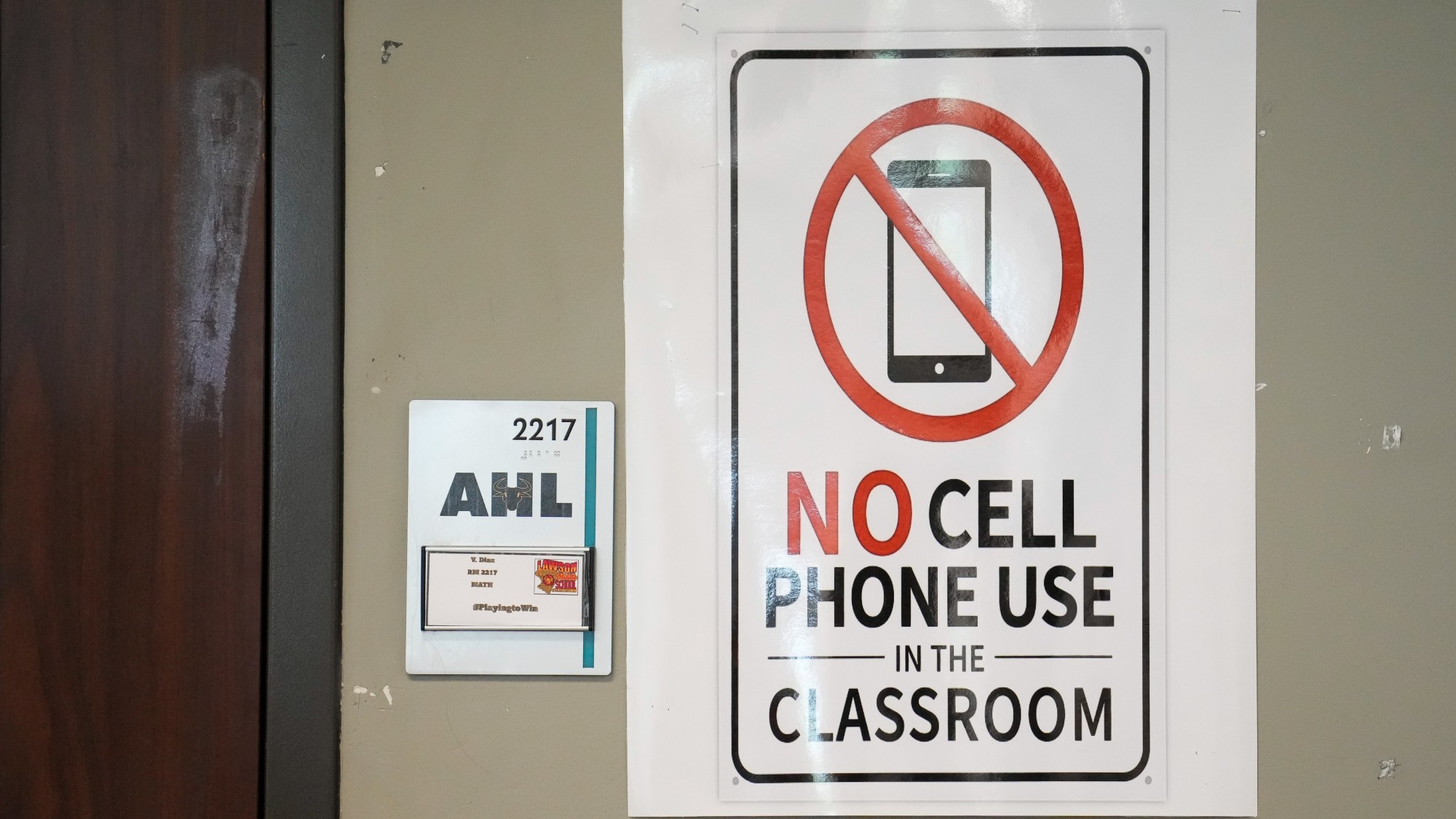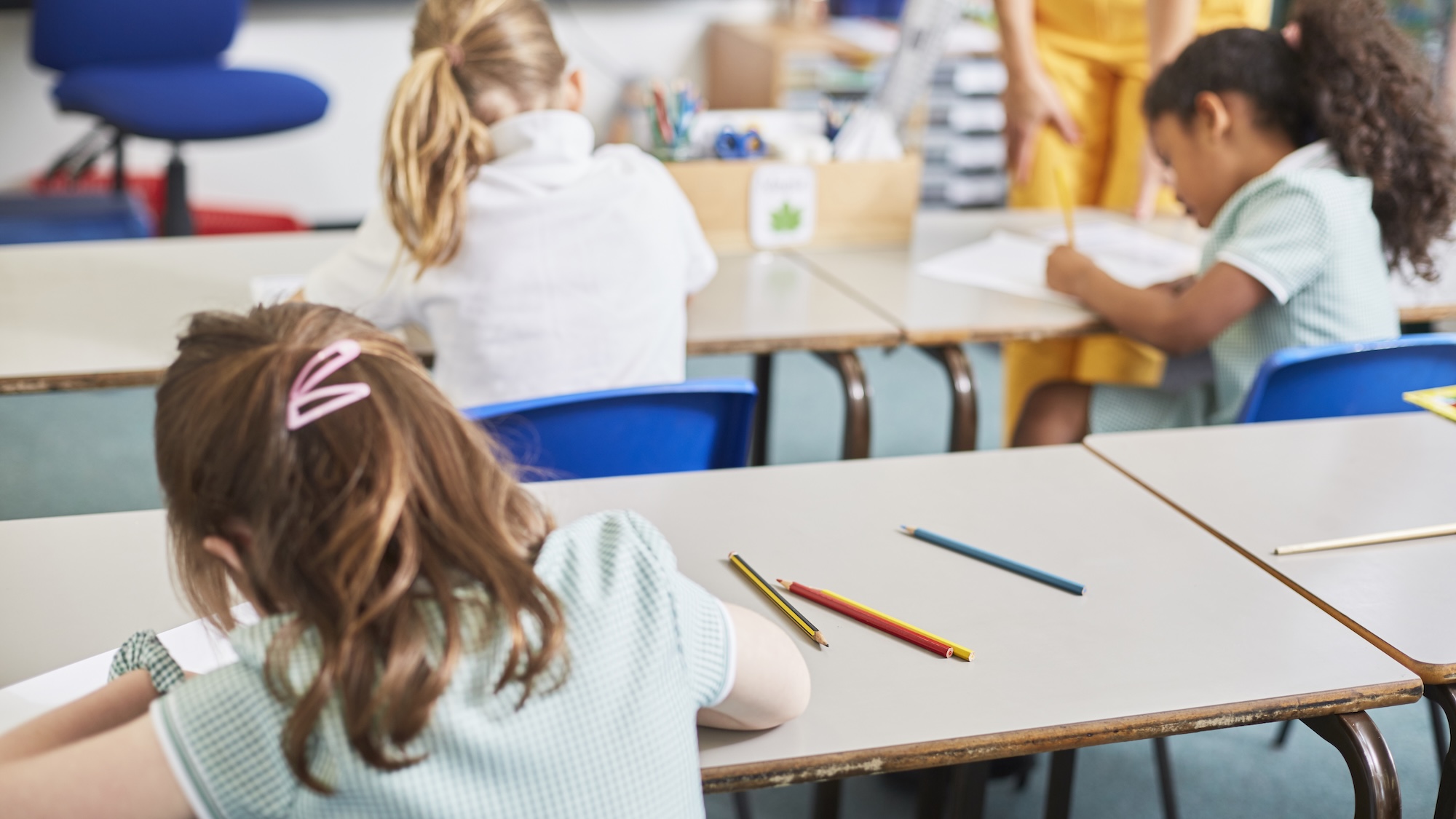UK schools to close until further notice over coronavirus
Exams are cancelled, but provision will be made for children of key workers


A free daily email with the biggest news stories of the day – and the best features from TheWeek.com
You are now subscribed
Your newsletter sign-up was successful
After Friday UK schools will close indefinitely to all but the most vulnerable and the children of key workers, with end-of-year exams cancelled, due to the coronavirus outbreak.
Wednesday saw the UK death toll reach 104, and known infections rise by 676 to 2,626. “We think now we must apply downward pressure on that upward curve by closing the schools,” said Boris Johnson in a Downing Street press conference.
However, he said children “should not be left” with grandparents or other elderly people to whom Covid-19 is particularly threatening.
The Week
Escape your echo chamber. Get the facts behind the news, plus analysis from multiple perspectives.

Sign up for The Week's Free Newsletters
From our morning news briefing to a weekly Good News Newsletter, get the best of The Week delivered directly to your inbox.
From our morning news briefing to a weekly Good News Newsletter, get the best of The Week delivered directly to your inbox.
The measures, which were announced simultaneously by the prime minister and, in the Commons, Education Secretary Gavin Williamson, apply to state schools, and the government urged private schools, sixth form colleges and nurseries to follow suit.
The coronavirus spike is “increasing at a faster pace than anticipated”, Williamson said. “I’ve said before that if the science and the advice changed, such that keeping schools open would no longer be in the interests of children and teachers, that we would act.”
Schools will be required to make provision to care for the children of key workers and the most vulnerable.
Williamson said: “The scientific advice shows that these settings are safe for this small number of children to continue attending – but asking others to stay away will help us to slow the spread.”
A free daily email with the biggest news stories of the day – and the best features from TheWeek.com
Which workers are deemed key has yet to be fully clarified, but on top of NHS staff Johnson referenced police officers, supermarket delivery drivers and social care workers who look after the elderly.
The children who will continue to attend may have to temporarily change school.
The government has held back closing schools because it feared important parts of the workforce would be forced to remain home in the event of full closures. Wednesday’s announcement attempts to address this dilemma.
Many had also raised concerns over how some of the most disadvantaged children would eat without free school meals. Williamson said schools would be provided with vouchers for shops and supermarkets that could be posted out to poorer families.
England’s chief medical officer Professor Chris Whitty said the decision was not so much about protecting children, for whom the novel coronavirus is “not dangerous”, but rather designed to slow the rate of infections.
Internationally, governments are aiming to slow the rate of infection not to reduce the number of people infected over time, but rather to ensure at any one time their respective healthcare systems have capacity to treat the sick.
That capacity has been exceeded in Italy. Another 475 people lost their lives from Covid-19 there yesterday - the biggest single-day death toll in any country since the outbreak began.
–––––––––––––––––––––––––––––––For a round-up of the most important stories from around the world - and a concise, refreshing and balanced take on the week’s news agenda - try The Week magazine. Get your first six issues free–––––––––––––––––––––––––––––––
“We are very keen that in addition to closing schools we also made it possible for NHS staff to have their children go to school,” Whitty said, while also offering guidelines for those who must now care for their children during the outbreak.
“Being outside in the park is a very good thing to do and taking exercise is always a good thing to do - the thing we are trying to avoid is people meeting up unnecessarily or having unnecessary social contact,” he said.
GCSEs, A-levels and Sats are now cancelled in England and Wales, although that decision has yet to be made in other parts of the UK.
Asked how this will affect childrens’ progress towards qualifications, Johnson offered reassurance. “We will make sure that their progress is not impeded as a result of this decision we have to make now,” he said.
The decision had become “inevitable”, says Hannah Richardson, for the BBC. “Heads and teachers are just as at risk as anyone else, and as more and more staff called in sick - increasing numbers of schools started to fall like dominoes under the weight of this pandemic.”
However, Paul Whiteman, general secretary of the National Association of Head Teachers, said there were “many complicated issues to address” and “we have more questions than answers at the moment”.
William Gritten is a London-born, New York-based strategist and writer focusing on politics and international affairs.
-
 El Paso airspace closure tied to FAA-Pentagon standoff
El Paso airspace closure tied to FAA-Pentagon standoffSpeed Read The closure in the Texas border city stemmed from disagreements between the Federal Aviation Administration and Pentagon officials over drone-related tests
-
 Political cartoons for February 12
Political cartoons for February 12Cartoons Thursday's political cartoons include a Pam Bondi performance, Ghislaine Maxwell on tour, and ICE detention facilities
-
 Arcadia: Tom Stoppard’s ‘masterpiece’ makes a ‘triumphant’ return
Arcadia: Tom Stoppard’s ‘masterpiece’ makes a ‘triumphant’ returnThe Week Recommends Carrie Cracknell’s revival at the Old Vic ‘grips like a thriller’
-
 The pros and cons of banning cellphones in classrooms
The pros and cons of banning cellphones in classroomsPros and cons The devices could be major distractions
-
 School phone bans: Why they're spreading
School phone bans: Why they're spreadingFeature 17 states are imposing all-day phone bans in schools
-
 Schools: The return of a dreaded fitness test
Schools: The return of a dreaded fitness testFeature Donald Trump is bringing the Presidential Fitness Test back to classrooms nationwide
-
 Send reforms: government's battle over special educational needs
Send reforms: government's battle over special educational needsThe Explainer Current system in 'crisis' but parents fear overhaul will leave many young people behind
-
 Education: Can public schools be religious?
Education: Can public schools be religious?Feature A Supreme Court seems ready to rule in favor of religious charter schools in Oklahoma, which could reshape public education
-
 America's academic brain drain has begun
America's academic brain drain has begunIN THE SPOTLIGHT As the Trump administration targets universities and teachers, educators are eying greener academic pastures elsewhere — and other nations are starting to take notice
-
 Schools' Send crisis: how can it be fixed?
Schools' Send crisis: how can it be fixed?Today's Big Question Government urged to reform support for children with special educational needs and disabilities and save councils from bankruptcy
-
 Unschooling: the radical education trend raising eyebrows
Unschooling: the radical education trend raising eyebrowsUnder the radar Some parents are letting their children lead their education
